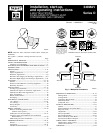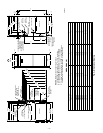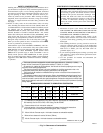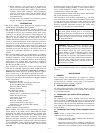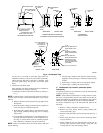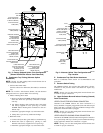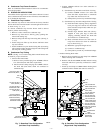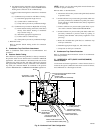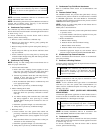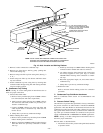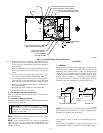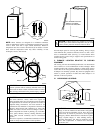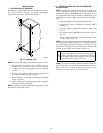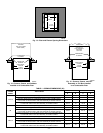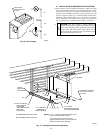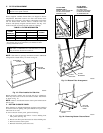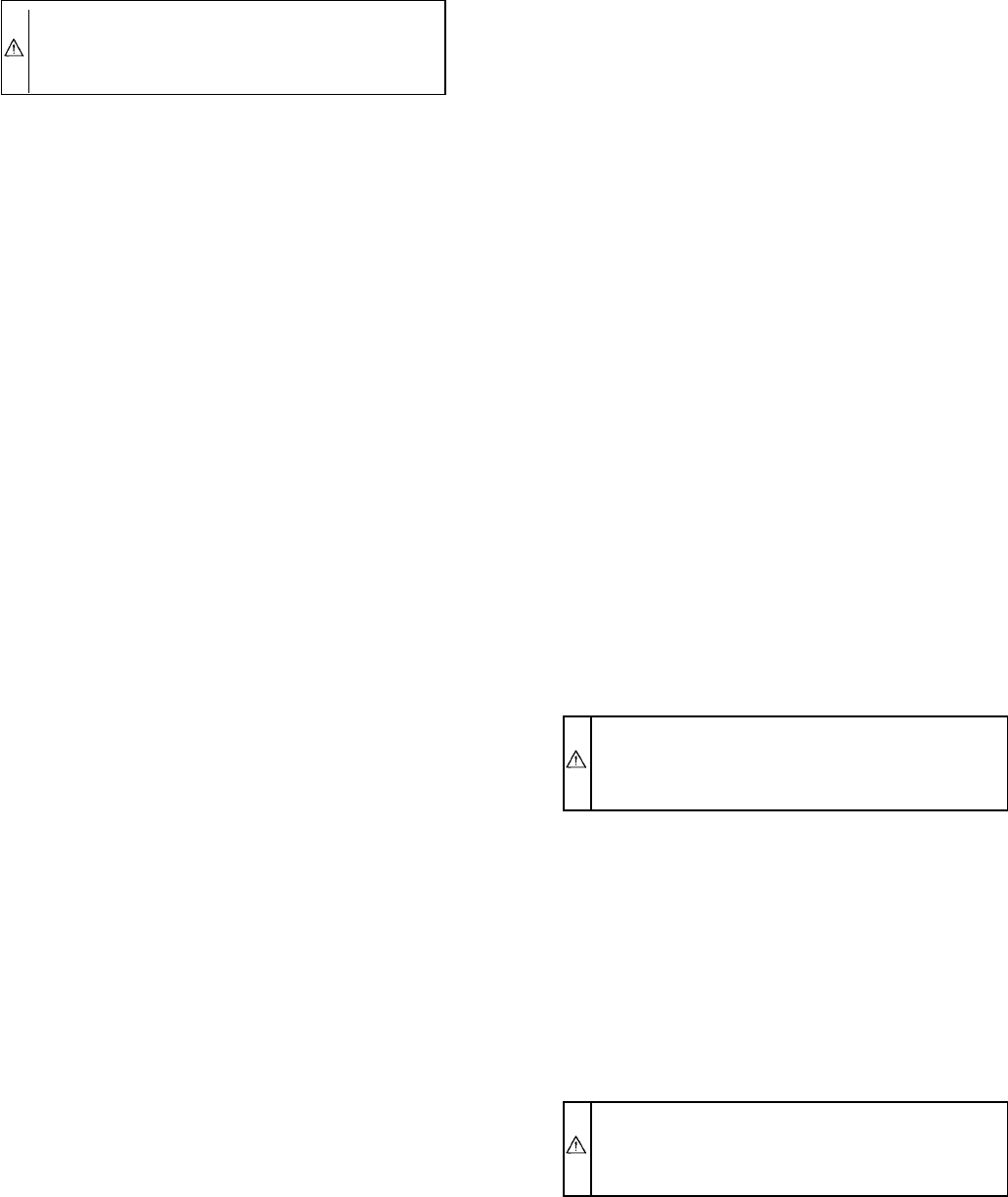
CAUTION: Local codes may require a drain pan under
entire furnace and condensate trap when a condensing
furnace is used in an attic application or over a finished
ceiling.
NOTE: In Canada, installations shall be in accordance with
current NSCNGPIC and/or local codes.
NOTE: The auxiliary junction box (J-Box) MUST be relocated to
opposite side of furnace casing. (See Fig. 9.) See Electrical
Connection section for J-Box relocation.
A. Condensate Trap Location
The condensate trap must be removed from the factory-installed
blower shelf location and relocated in selected application location
as shown in Fig. 2 or 9.
To relocate condensate trap from the blower shelf to desired
location, perform the following:
1. Remove 3 tubes connected to condensate trap.
2. Remove trap from blower shelf by gently pushing tabs
inward and rotating trap.
3. Remove casing hole filler cap from casing hole. (See Fig. 2
or 9.)
4. Install casing hole filler cap into blower shelf hole where
trap was removed.
5. Install condensate trap into casing hole by inserting tube
connection stubs through casing hole and rotating until tabs
snap into locking position.
B. Condensate Trap Tubing
NOTE: See Fig. 9 or tube routing label on main furnace door to
check for proper connections.
1. Collector Box Drain Tube
a. Install drain tube coupling (factory-supplied in loose
parts bag) into collector box drain tube (blue label)
which was previously connected to condensate trap.
b. Connect large diameter drain tube and clamp (factory-
supplied in loose parts bag) to drain tube coupling,
extending collector box drain tube.
c. Route extended tube (blue label) to condensate trap and
cut to appropriate length.
d. Clamp tube to prevent any condensate leakage.
2. Inducer Housing Drain Tube
a. Remove and discard LOWER (molded) inducer housing
drain tube which was previously connected to conden-
sate trap.
b. Use inducer housing drain extension tube (violet label
and factory-supplied in loose parts bag) to connect
LOWER inducer housing drain connection to the con-
densate trap.
c. Determine appropriate length, cut, and connect tube.
d. Clamp tube to prevent any condensate leakage.
3. Relief Port Tube
a. Extend collector box tube (green label) which was
previously connected to the condensate trap by splicing
to small diameter tube (factory-supplied in loose parts
bag).
b. Route extended collector box pressure tube to relief port
connection on the condensate trap.
c. Determine appropriate length, cut, and connect tube.
d. Clamp tube to prevent any condensate leakage.
C. Condensate Trap Field Drain Attachment
Refer to Condensate Drain section for recommendations and
procedures.
D. Pressure Switch Tubing
The LOWER collector box pressure tube (pink label) is factory
connected to the pressure switch for use when furnace is installed
in UPFLOW applications. This tube MUST be disconnected,
extended, rerouted, and then reconnected to the pressure switch in
HORIZONTAL LEFT applications.
NOTE: See Fig. 9 or tube routing label on main furnace door to
check for proper connections.
Modify tube as described below.
1. Disconnect collector box pressure tube (pink label) attached
to pressure switch.
2. Use smaller diameter tube (factory-supplied in loose parts
bag) to extend tube disconnected in item 1.
3. Route extended tube:
a. Behind inducer housing.
b. Between blower shelf and inducer housing.
c. Behind inducer motor bracket.
d. Between inducer motor and pressure switch.
4. Determine appropriate length, cut, and reconnect tube to
pressure switch connection labeled COLLECTOR BOX.
E. Condensate Trap Freeze Protection
Refer to Condensate Drain Protection section for recommenda-
tions and procedures.
F. Construct a Working Platform
Construct working platform where all required furnace clearances
are met. (See Fig. 3 and 10.)
CAUTION: The condensate trap MUST be installed
below furnace. See Fig. 4 for dimensions. The drain
connection to condensate trap must also be properly
sloped to an open drain.
NOTE: Combustion-air and vent pipes are restricted to a mini-
mum length of 5 ft. (See Table 6.)
NOTE: A 12-in. minimum offset pipe section is recommended
with short (5 to 8 ft) vent systems. This recommendation is to
reduce excessive condensate droplets from exiting the vent pipe.
(See Fig. 10 or 28.)
V. HORIZONTAL RIGHT (SUPPLY-AIR DISCHARGE)
APPLICATIONS
A horizontal right furnace application is where furnace blower is
located to the left of combustion and controls section of furnace,
and conditioned air is discharged to the right.
CAUTION: Local codes may require a drain pan under
entire furnace and condensate trap when a condensing
furnace is used in attic application or over a finished
ceiling.
NOTE: In Canada, installations shall be in accordance with
current NSCNGPIC Installation Codes and/or local codes.
A. Condensate Trap Location
The condensate trap must be removed from the factory-installed
blower shelf location and relocated in selected application location
as shown in Fig. 2 or 11.
To relocate condensate trap from the blower shelf to desired
location, perform the following:
—9—
→



